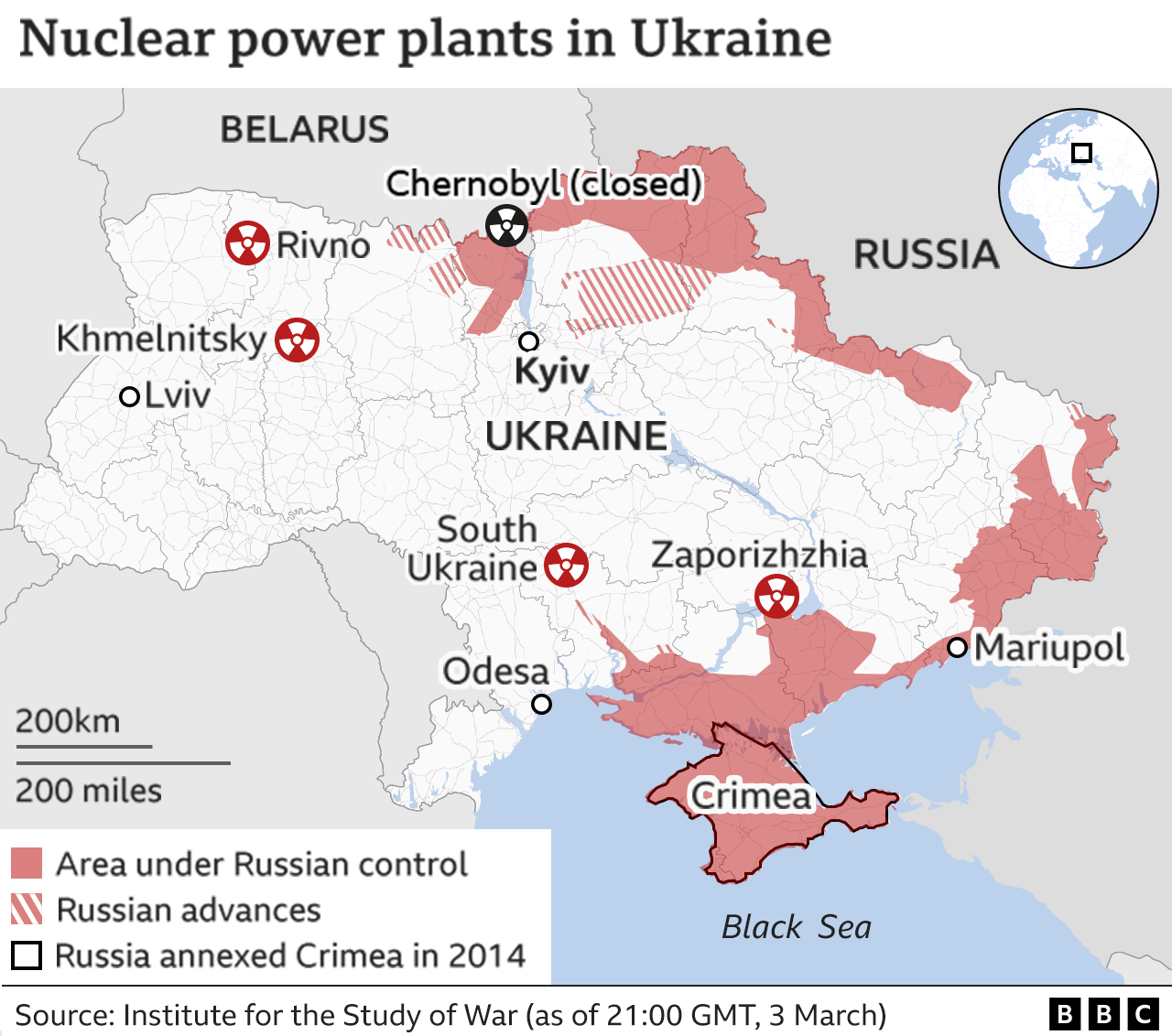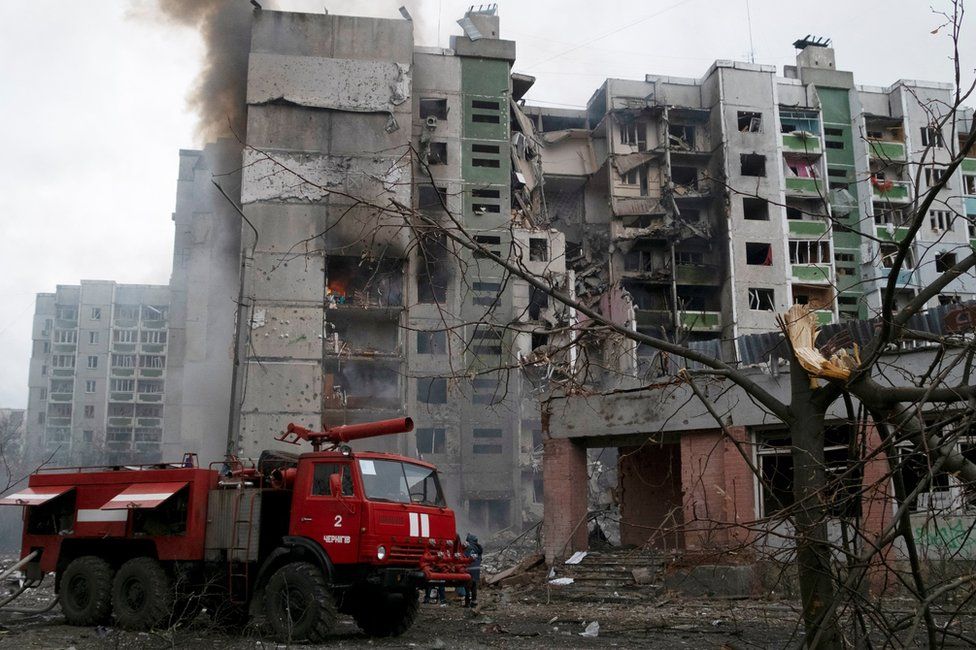Ukraine conflict: Your guide to understanding day nine
Day nine of the invasion saw Russian forces attack and seize Europe's largest nuclear plant, prompting initial fears of a radiation leak and drawing Western condemnation.
A projectile hit a building near one of the six reactors at the Zaporizhzhia plant overnight, causing a fire that was later extinguished.
The global nuclear watchdog said none of the reactor safety systems were affected and there was no release of radioactive material.
Ukraine's President Volodymyr Zelensky accused Russia of resorting to "nuclear terror", while British Prime Minister Boris Johnson said such "reckless actions" could "threaten the safety of all Europe".
Nuclear experts told the BBC's Esme Stallard and Victoria Gill that the attack created a very risky situation.
"For the first time this morning, I'm frightened," said Prof Claire Corkhill of the University of Sheffield.


You can see more maps showing what we know of the day's developments here: Tracking Russia's invasion in maps

Why the south matters
Russian forces captured the Zaporizhzhia plant as part of an advance into southern Ukraine that appears to have been more successful than those in the country's north and east.
The BBC's Ben Tobias says Russia sees the south as vital to the success of the invasion.
Its soldiers have moved into the region from Crimea, which was annexed from Ukraine in 2014 and is home to a sizeable Russian military presence.
Kherson - which is located where the Dnieper river meets the Black Sea - became the first major city to fall to Russian troops on Thursday.
They are also moving east towards Mariupol and west towards Odesa, threatening to cut off Ukraine's maritime access.

'Why are they bombing us?'
 Image source, Reuters
Image source, ReutersRussian forces have also stepped up their bombardment of northern cities.
In Chernihiv, aerial attacks destroyed high-rise apartment buildings and damaged a clinic and hospital on Thursday, reportedly killing at least 47 civilians.
"There are no military targets here, there is only a cemetery, residential buildings, clinics and a hospital, why are they bombing us?" Svitlana, 40, told the BBC on Friday, as she hid under her dining table with her two children, aged six and three, and her neighbours.

A city moves underground
The BBC's Sarah Rainsford found frightened residents of Ukraine's second city of Kharkiv sheltering in a metro station, hiding from the bombs and shells.
"These are mostly Russian speakers, their city is 40km from the Russian border and they don't understand why Russia is attacking them," she said.
"One old lady, who's spent days sleeping inside a train carriage, living off hand-outs and too scared to surface onto the street, told me people in Kharkiv even respected Vladimir Putin before all this - as president of another country - but not anymore. She was furious."

'Mum won't believe me'
Maria Korenyuk and Jack Goodman of the BBC World Service Disinformation Team spoke to a woman in Kharkiv who has been unable to convince her Moscow-based mother that civilians are being killed in Russian attacks.
"Even though they worry about me, they still say it probably happens only by accident, that the Russian army would never target civilians. That it's Ukrainians who're killing their own people," said Oleksandra, 25.
She believed her parents' understanding of the conflict is down to the stories they are told by the official Russian media.
Meanwhile independent journalism is Russia is being severely curtailed, with some of the last remaining outlets closing.
The BBC was also forced to suspend its operations in Russia on Friday, after Russian authorities introduced new rules threatening journalists with prison sentences.
Director General Tim Davie said the BBC News service in Russian would continue to operate from outside the country.


Coach goes home to fight
The manager of Moldovan football club Sheriff Tiraspol, Yuriy Vernydub, has left his position to return to his native Ukraine and enlisted to help defend it.
Vernydub, 56, who masterminded a shock Champions League win against Real Madrid last year, told BBC Sport that he was "not afraid".
"My son called me at 4:30am and he told me the Russians attacked us. I knew then that I would return to Ukraine to fight," he said.



No comments